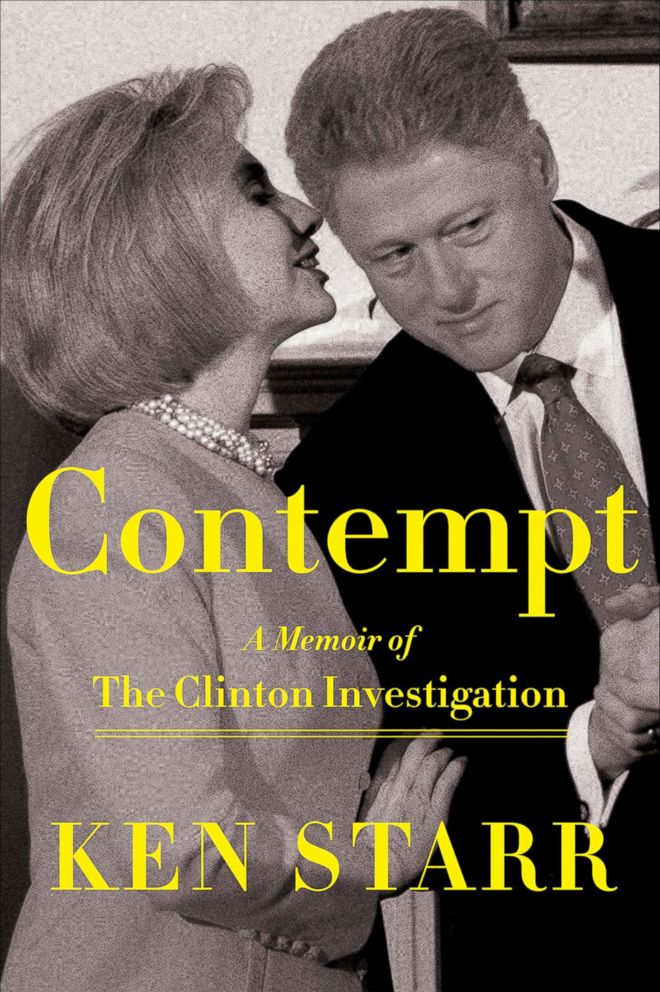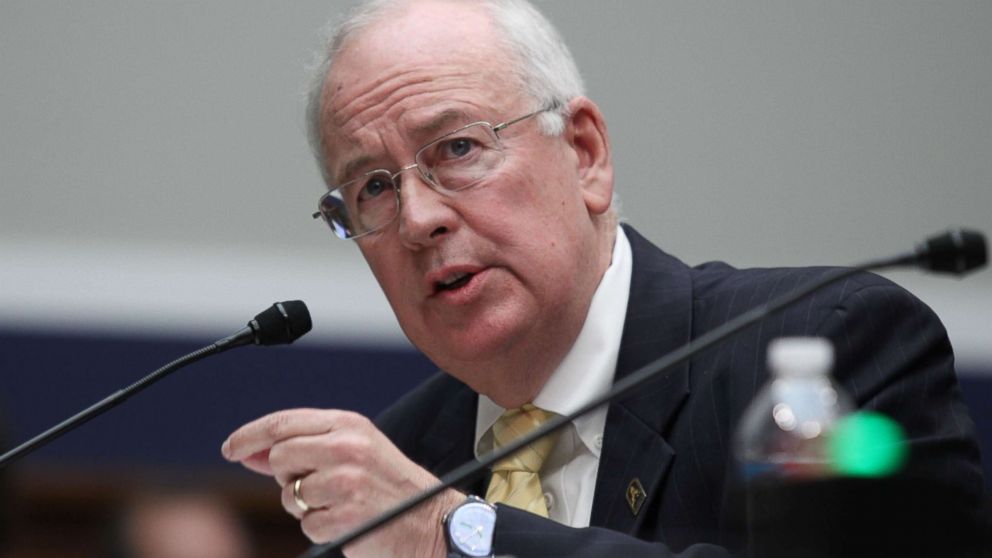Ken Starr accuses Trump of 'abuse of power' but not obstruction of justice
Twenty years ago, then-Independent Counsel Ken Starr led the investigation into President Bill Clinton and his affair with intern Monica Lewinsky, which resulted in the first presidential impeachment in more than a century. Starr joined ABC News’ “Powerhouse Politics” podcast this week to discuss his new book, “Contempt: A Memoir of the Clinton Investigation,” with ABC Chief White House correspondent Jonathan Karl. He also weighed in on the current special counsel investigation that President Donald Trump calls a “witch hunt.”
While Starr has been critical of President Trump’s criticism of special counsel Robert Mueller’s probe into possible collusion with Russia in the 2016 election, what concerns him more are Trump's tweets attacking Attorney General Jeff Sessions.
Starr, a former federal appeals court judge, was outraged by the president’s recent tweet complaining about the Justice Department’s indictment of two Republican congressmen, saying it hurt the GOP's chances of holding onto the House in November's elections. Not only is Trump undermining the rule of law, Starr said, but he's accusing the Justice Department of playing politics and seems to fault Sessions for not intervening.
“I think it’s inappropriate in the extreme,” Starr said. “In my view, it does not constitute obstruction of justice because the president has the raw power to do what he’s doing. But I do think it sounds in the nature of an abuse of power and that becomes a political issue, and ultimately an issue for the House of Representatives.”
Starr also weighed in on the Mueller investigation. President Trump’s legal team has made clear that if the president were to be subpoenaed by the special counsel, they would fight it.
“I think no one is above the law,” Starr said. “The president can, in fact, be subpoenaed.”
According to Starr, there are similarities between Mueller’s investigation and the one he spearheaded two decades ago - namely the White House attacks on prosecutors.
“There are very strong, almost eerie echoes, of the past,” Starr said. “It’s my understanding that they have said: ‘We’re just taking a page from the Clinton playbook to vilify the prosecutor.’”

Starr’s almost five-year investigation included delving into Hillary Clinton and her alleged financial wrongdoing while she worked at the Rose Law firm in Arkansas. Starr details how critical pieces of evidence went missing, including the billing records at the firm which were crucial to his investigation into the then-first lady. Those documents later showed up years later in the White House in the actual room where Clinton was writing her memoir. He details why he thinks Hillary Clinton hid those records in “Contempt.”
In his book, Starr reveals that he had an indictment of Hillary Clinton ready to go. “We did gather together to review a proposed indictment of Hillary Rodham Clinton, to present to the grand jury in Little Rock - an indictment supported by a very elaborate prosecution memorandum,” Starr said. “I remember this as if it were yesterday, and we decided we just did not have the evidence to go forward, that would be usable in court to prove her guilt beyond a reasonable doubt.”
Starr said he does not regret that decision. The probe was missing cooperation from key players in the case, including Vincent Foster, who had committed suicide. He dismissed the idea that his team found nothing, citing the 14 criminal convictions of other players, including Bill Clinton’s successor as Arkansas governor, Jim Guy Tucker, who resigned. “There was an enormous amount of skullduggery in Arkansas.”

Starr’s book cover features a telling photo of Hillary Clinton whispering to her husband and he said it serves as a reminder of the limits of presidential power.
“No one is above the law, and much of my book is devoted to exactly that,” Starr said. “The reason my book is named ‘Contempt,” is first and foremost that Bill Clinton is the only president in American history to have been held in contempt by a federal district judge. That stands in the history books as final, irrevocable. It can’t be changed.”




